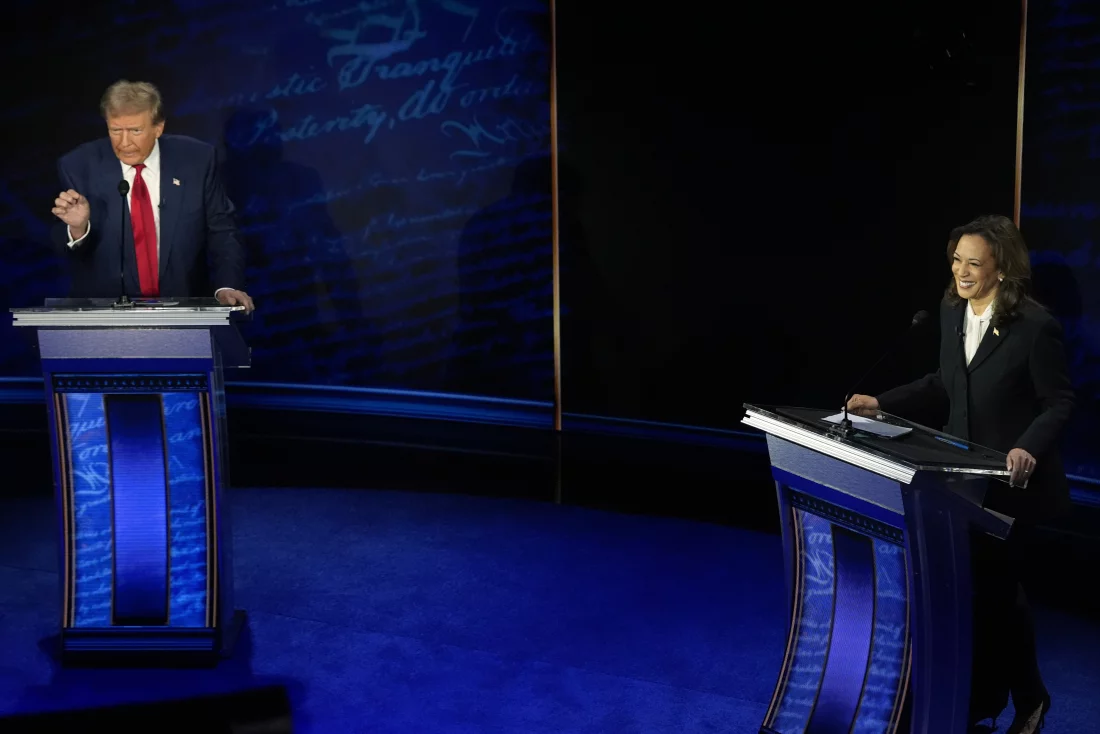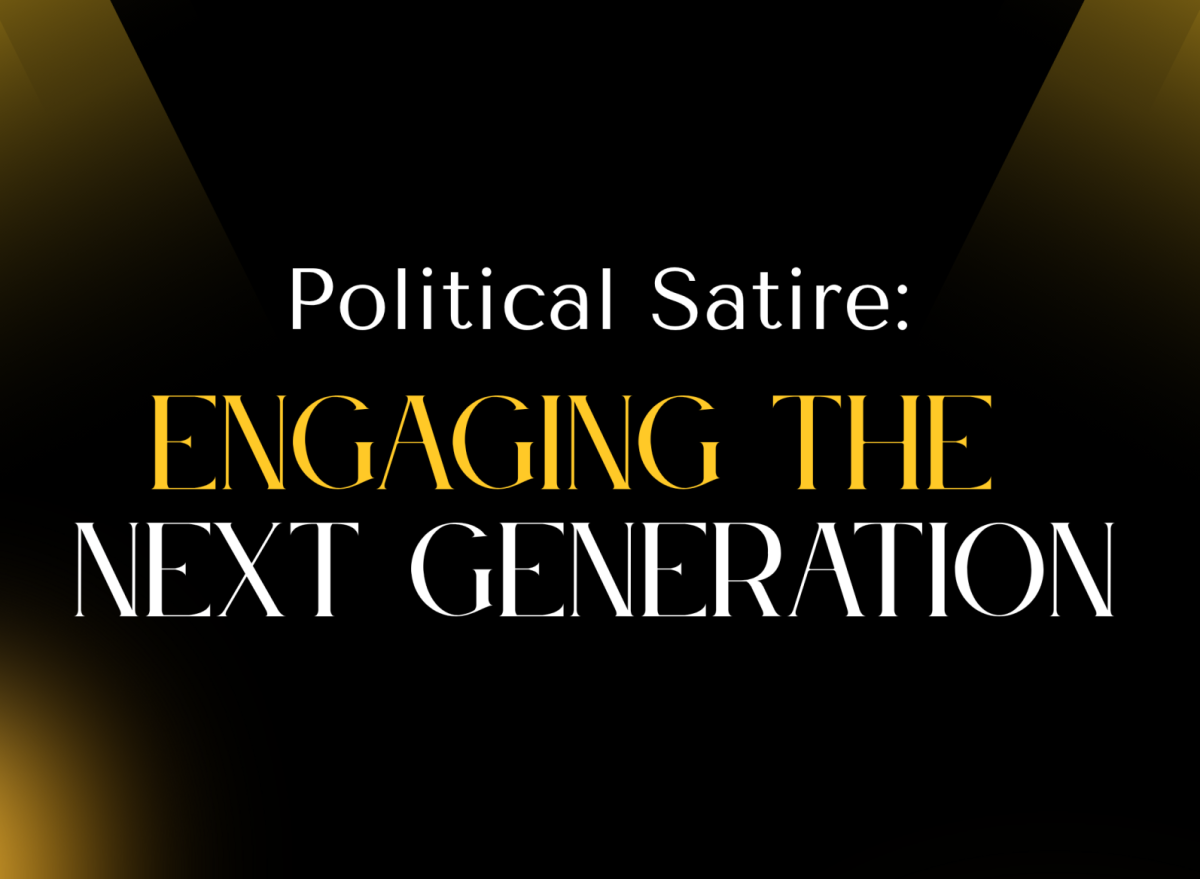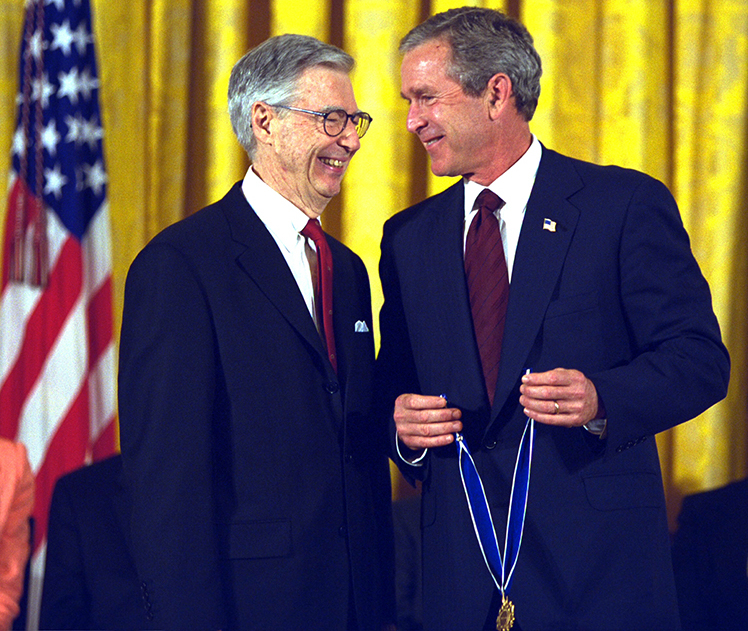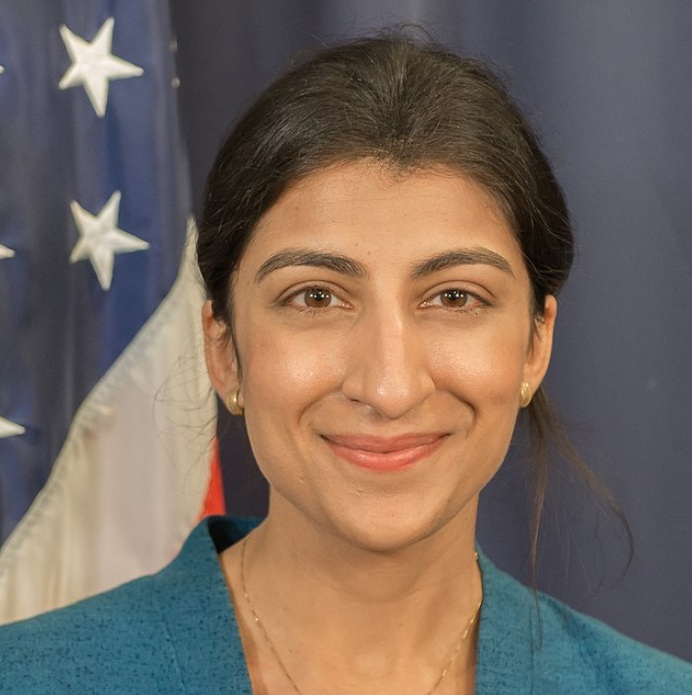The margin between Vice President Kamala Harris and former President Donald Trump in the 2024 election is tight, with only three weeks left for them to grasp extra ballots before the big day. Thus, the two candidates are focused on garnering support from those final uncommitted voters, as that will be determinant of who becomes president. One thing that helped sway the polls was the traditional presidential debate. Though the debate doesn’t usually have a huge impact on voters, it was particularly important for Harris to deliver a good performance this year due to her late entrance into the race. People were unsure of her stance on certain policies, and had never seen her directly interact with former President Trump. However, according to many she exceeded expectations and did very well. In a study conducted by SSRS, it was found that 63% of watchers felt Harris outperformed Trump, compared to the 37% who favored Trump, a historically large margin. The Democratic Party was ecstatic at the numbers, as that is nearly double the percent of people who approved of Biden’s performance earlier this year, which was a big let down for many. We will now take a more detailed look at how exactly the debate influenced the perspectives on each candidate and if it has shifted the numbers for who is projected to win on election day.
How the debate influenced voters’ perspectives on Harris
A large number of spectators felt that Harris did an excellent job in defending her various political stances while responding to Trump’s aggressive—and sometimes misleading—attacks. For example, the Vice President explained her plans on tax breaks for small businesses and parents, as well as her shift on the issue of fracking, which had been troubling for voters in the past. Some of her strongest moments were when talking about the topic of abortion, which has been a top concern for voters and is one of the GOP’s weakest spots. She called Trump “insulting to the women of America” due to his stance on abortion—which is usually that it’s up to the states—explaining that women need the federal right to preserve their health and lives.
Harris felt in control of the debate the entire time, as she was calm yet strong in her statements, and was able to bait Trump multiple times and push his buttons. She accused Trump of causing the Capital Riot on Jan. 6, 2021, and stated that he posed an existential threat to American democracy. She made fun of his rallies, pointing out how the numbers dwindled as time went on with people leaving early due to his bad performance. She reminded him that he “did in fact lose [the] election” in the 2020 race against Biden, which Trump still insists that he won despite the numbers saying otherwise. Harris set up traps for Trump which he fell right into: she talked about his biggest insecurities, such as Project 2025 and his bankruptcies, which visibly irritated him and hindered his ability to stay calm and collected. In many’s eyes, she was able to catch Trump in moments of weakness in front of the whole country.
Even though Harris had a significant victory on stage, the big question is what impact it will have on the polls. According to 538’s forecasting model, on Monday, Sept. 16—six days after the debate ended—Harris’ chance of winning the election rose to 61-in-100, which was a record high for the candidate. However, the latest forecast from Tuesday Oct. 1 indicates that her chances have decreased back to 56-in-100 for winning the majority of Electoral College votes, meaning the issue is still in flux.
How the debate influenced voters’ perspectives on Trump
On the other hand, many viewers felt the opposite with former President Trumps’ performance, as he was exceedingly defensive and couldn’t articulate what he wanted to say to the viewers effectively. He continuously asserted that Harris “is Biden” and that it was her fault for issues such as high inflation and a downturned economy, which can’t be completely attributed to the Vice President. Trump’s answers lacked substance, as he couldn’t provide a concrete explanation on core issues such as abortion and health care. When the ABC moderators asked Trump about his plans to replace the Affordable Care Act, he didn’t provide a concrete or coherent response, forcing the follow up question of, “So just yes or no, you still do not have a plan?” Trump continued to answer with “I have concepts of a plan” (emphasis added), making it clear to voters that he was just avoiding the question and still doesn’t know what to do. He explained that he did not support a federal abortion ban—which is in contradiction with what his Vice President J.D. Jance has expressed—yet was unclear on what he really thought about the topic, saying whether or not he would veto a national ban doesn’t matter because it would “never” make it to the president’s desk anyways. He dodged questions and downplayed Harris’ concern on a variety of issues, such as his past racial controversies and how he has mischaracterized his opponent’s race in the past.
Additionally, during the debate Trump was caught lying on multiple occasions as he repeated blatantly false conspiracy theories in place of real answers. For example, on the topic of immigration the former president reinforced false rumors that have arisen on social media platforms like X about immigrant behavior in Ohio. He said that “In Springfield, they’re eating the dogs,” with Harris laughing in response, making him seem unserious due to this disproven conspiracy . He was corrected a total of four times by the debate moderators David Muir and Linsey Davis, and lost his cool when they did so. Additionally, he was on the defensive when Harris spoke illy of his rallies, saying that “people don’t leave my rallies we have the biggest rallies, the most incredible rallies in the history of politics, because people want to take their countries back.” Thus, Trump was seen by many as unsuccessful at responding to questions during the debate, as he allowed Harris to get under his skin and wasn’t clear or assured in his answers.
However, it wasn’t all bad for the former President, as Trump had a couple of stronger moments throughout the debate as well. An example is when he was able to point out how Harris’ policy positions have shifted multiple times throughout her political career—such as her views on immigration—making some feel uncertain about what she is actually going to do if elected into office. Trump blamed Harris for moving away from the more far-left and progressive positions she took during the 2020 presidential primary, calling her shift to a more moderate stance a facade. He said that “if she ever got elected, she’d change it,” highlighting the fact that Harris has previously not stuck to her word. Furthermore, Trump’s closing line of “She’s going to do all these wonderful things, why hasn’t she done it?” is seen as one of his best points made, as he reminds the audience of Harris’ past unfulfilled promises, similar to President Biden’s.
The debate didn’t do Trump any favors, however. Polls show that it didn’t significantly decrease his chances either. After all, the key seven swing states are seen to be more conservatively leaning, and Trump has a devoted base of supporters throughout the country. All in all, there is still about a 50/50 chance that either Harris or Trump wins the election, and some say it’s still too early to fully grasp a conclusive prediction. Even though the debate gave former Vice President Harris a slight leg up—undoing some of her former losses—whether or not it’s enough to take the victory in the long run is still uncertain.









